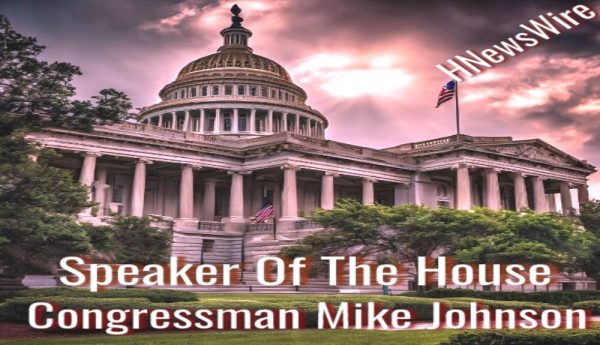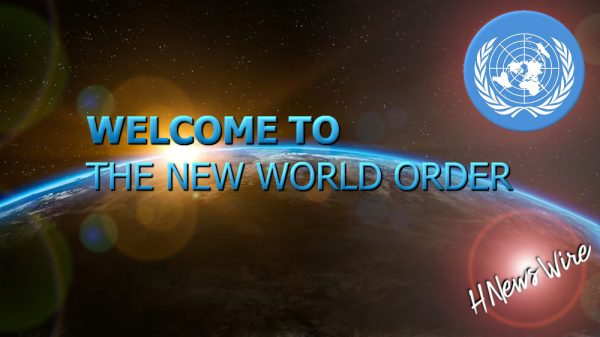
Advisory: Be careful of what you read on social media. The algorithms used by these platforms have no regard for Biblical truth. They target your emotions to keep you engaged on their site so their advertisers can drop more ads. These platforms exist to enrich their stockholders. Consider God’s promise to Believers in James 1:5, “If any of you lacks wisdom, you should ask God, who gives generously to all without finding fault, and it will be given to you.”
Featured Story
The Quadrilateral Security Dialogue (QSD, also known as the Quad or QUAD) is a strategic dialogue between the United States, India, Japan and Australia that is maintained by talks between member countries. The Donald Trump administration worked closely with these countries, and the Biden administration is expanding the Quad’s agenda.
As of 2021, leaders in all four countries have become more aligned in their shared concerns about China’s increasingly assertive behavior in the region and are more willing to define a constructive agenda of cooperation. All four navies participated in their first joint exercise in over a decade in November 2020. And in March 2021, U.S. President Joe Biden convened a virtual Quad meeting attended by Australian Prime Minister Scott Morrison, Indian Prime Minister Narendra Modi, and Japanese Prime Minister Yoshihide Suga. They formed working groups on COVID-19 vaccines, climate change, and technological innovation and supply-chain resilience.
The quad leaders released a five point joint statement detailing their intentions moving forward concerning the virtual summit the four nations conducted march 12, 2021.
1.” We have convened to reaffirm our commitment to quadrilateral cooperation between Australia, India, Japan, and the United States. We bring diverse perspectives and are united in a shared vision for the free and open Indo-Pacific. We strive for a region that is free, open, inclusive, healthy, anchored by democratic values, and unconstrained by coercion. We recall that our joint efforts toward this positive vision arose out of an international tragedy, the tsunami of 2004. Today, the global devastation wrought by COVID-19, the threat of climate change, and security challenges facing the region summon us with renewed purpose. On this historic occasion of March 12, 2021, the first-ever leader-level summit of the Quad, we pledge to strengthen our cooperation on the defining challenges of our time.“
2. “Together, we commit to promoting a free, open rules-based order, rooted in international law to advance security and prosperity and counter threats to both in the Indo-Pacific and beyond. We support the rule of law, freedom of navigation and overflight, peaceful resolution of disputes, democratic values, and territorial integrity. We commit to work together and with a range of partners. We reaffirm our strong support for ASEAN’s unity and centrality as well as the ASEAN Outlook on the Indo-Pacific. Full of potential, the Quad looks forward to the future; it seeks to uphold peace and prosperity and strengthen democratic resilience, based on universal values.“
3. “Our common goals require us to reckon with the most urgent of global challenges. Today, we pledge to respond to the economic and health impacts of COVID-19, combat climate change, and address shared challenges, including in cyber space, critical technologies, counterterrorism, quality infrastructure investment, and humanitarian-assistance and disaster-relief as well as maritime domains.”
4. “Building on the progress our countries have achieved on health security, we will join forces to expand safe, affordable, and effective vaccine production and equitable access, to speed economic recovery and benefit global health. With steadfast commitment to the health and safety of our own people, we also recognize that none of us can be safe as long as the pandemic continues to spread. We will, therefore, collaborate to strengthen equitable vaccine access for the Indo-Pacific, with close coordination with multilateral organizations including the World Health Organization and COVAX. We call for transparent and results-oriented reform at the World Health Organization. We are united in recognizing that climate change is a global priority and will work to strengthen the climate actions of all nations, including to keep a Paris-aligned temperature limit within reach. We look forward to a successful COP 26 in Glasgow. We will begin cooperation on the critical technologies of the future to ensure that innovation is consistent with a free, open, inclusive, and resilient Indo-Pacific. We will continue to prioritize the role of international law in the maritime domain, particularly as reflected in the United Nations Convention on the Law of the Sea (UNCLOS), and facilitate collaboration, including in maritime security, to meet challenges to the rules-based maritime order in the East and South China Seas. We reaffirm our commitment to the complete denuclearization of North Korea in accordance with United Nations Security Council resolutions, and also confirm the necessity of immediate resolution of the issue of Japanese abductees. As long-standing supporters of Myanmar and its people, we emphasize the urgent need to restore democracy and the priority of strengthening democratic resilience.”
5. “To advance these goals and others, we will redouble our commitment to Quad engagement. We will combine our nations’ medical, scientific, financing, manufacturing and delivery, and development capabilities and establish a vaccine expert working group to implement our path-breaking commitment to safe and effective vaccine distribution; we will launch a critical- and emerging-technology working group to facilitate cooperation on international standards and innovative technologies of the future; and we will establish a climate working group to strengthen climate actions globally on mitigation, adaptation, resilience, technology, capacity-building, and climate finance. Our experts and senior officials will continue to meet regularly; our Foreign Ministers will converse often and meet at least once a year. At the leader level, we will hold an in-person summit by the end of 2021. The ambition of these engagements is fit to the moment; we are committed to leveraging our partnership to help the world’s most dynamic region respond to historic crisis, so that it may be the free, open, accessible, diverse, and thriving Indo-Pacific we all seek.”
Experts believe that Japan’s new prime minister, Fumio Kishida, will continue to increase Japan’s commitment to the Quadrilateral Security Dialogue (Quad), but that greater efforts to strengthen Japan’s military will be necessary to secure the region from aggression by the Chinese regime.
A key area of concern is the ability of the Japan Self-Defense Forces (JSDF) to adequately carry out joint military activities with its allies in the Quad, the informal forum for strategic coordination between Australia, India, Japan, and the United States in the Indo-Pacific.
“American and Japanese ‘alliance managers’ have boasted for years that the alliance has never been stronger,” said Grant Newsham, a senior research fellow at the Japan Forum for Strategic Studies. “One fairly asks: Compared to what?”
“Except for their two navies, the U.S. forces and JSDF really cannot work together very well at all,” Newsham added. “This needs to be fixed.”
The push to build interoperability between nations’ forces, effectively allowing their militaries to work as a single joint unit in combat, has been a core focus of the Quad in recent years and is a central part of the allied strategy to mitigate adventurism by the Chinese regime, particularly with regard to the safety of Taiwan—the self-ruled island Beijing claims as its own and has threatened to take by force if necessary.
Japan’s ground-based forces have not yet successfully built up that interoperable capability, however.
Japan’s (Self) Defense of Taiwan
Following World War II, Japan’s constitution was amended to allow for national self-defense forces while barring the buildup of an expeditionary military. Over time, Japan’s military policies slowly evolved to incorporate the defense of its allies as an extension of its self-defense.
That evolution came to the fore in June, when Defense Minister Yasuhide Nakayama made comments that Taiwan’s continued de-facto independence and democratic governance needed to be protected to ensure Japan’s own national security.
Since then, Japan announced funding for new missile and electronic warfare units across the Yaeyama Islands, some a mere 70 miles from Taiwan.
Newsham said that the JSDF, for all its professionalism and technology, still lacked the joint capabilities needed to effectively win a war against a major power like China.
“Militarily, Japan has not yet addressed JSDF shortcomings and developed JSDF capabilities needed to allow JSDF to fight a war against a serious opponent,” Newsham said.
“The Americans and Japanese apparently do not have a joint operational plan in the event something happens with Taiwan.” Newsham added. “There is also no joint Japan-US headquarters in Japan, or anywhere, where operations will be directed, or even peacetime training and exercises.”
Robert Eldridge, director for Northeast Asia at the Global Risk Mitigation Foundation and senior fellow at the Japan Strategic Studies Forum, also believed that the Kishida government would need to commit greater resources to tangibly increasing its defense of Taiwan if it hoped to successfully deter China.
“Japan is not doing enough to end Taiwan’s diplomatic isolation and preserve its safety and security,” Eldridge said in an email. “Speeches and comments are not enough. While they do send a message, it needs to be backed up.”
To that end, Eldridge commended Nakayama’s comments on Taiwan, and hoped that the Kishida government would follow suit with greater diplomatic and military commitment, which he believed the Japanese people would favor.
“Japanese public opinion supports doing more,” Eldridge said. “Unfortunately, most politicians do not understand this and continue to act cautiously.”
A Time for Choosing
A key issue at hand with the coming of the Kishida government, then, is how Japan as a democratic nation will build new capabilities from the successes of its involvement with the Quad.
“I think Kishida will keep things going on the current trend,” Newsham said. “But that’s the problem.”
“Japan’s defense is entirely inadequate, and without the Americans around the Japanese would be in big trouble. It would have no good options for taking on the Chinese aggressors, and no options at all that don’t involve nuclear weapons.”
To that end, Newsham said that Japan ought to do more to build upon the lessons learned by the U.S. Navy and maritime elements of the JSDF during Quad military exercises.
Further, given the goal of the Chinese regime to undermine the legitimacy and status of democracies everywhere, Newsham said that Japan’s example as a democratic nation in east Asia would be doubly effective once it improved such military capacities.
Newsham said that at the end of the day Japan was one of the United States’ key allies, and that its dedication to democratic principles ought not be overlooked.
“Sure, we have some differences, but Japan is a splendid example of individual freedom, rule of law, and consensual government,” Newsham said. “So is Taiwan for that matter.”
“A solidly linked US-Japan alliance with JSDF and US forces also solidly linked and able to operate together is, or will be, hugely stabilizing for the region and globally.”
Likewise, Eldridge said that Japan’s commitment to democratic principles demanded greater action, adding that the time to choose greater involvement and military responsibility was fast approaching.
“Japan and the LDP-led government as a whole, and Kishida’s faction in particular, are historically committed to the democratic principles of the postwar,” Eldridge said, referring to the ruling Liberal Democratic Party. “I would like to see Kishida do it more forcefully in the case of China, however.”
“[Japan] needs to understand that the world as a whole, the region in particular, and its only formal ally, the United States, expects Japan to play a larger role,” Eldridge said.
Source: EpochTimes

Tagged In
Newsletter
Must Read




Other Sources

Latest News
Watchman: A Healthy Fear of Our Father in Heaven Does Not Mean Constantly Looking Over Our Shoulders. Scripture Says, “The Fear of the Lord Is to Hate Evil” (Proverbs 8:13). The Devil Can Camouflage Evil, so It Doesn’t Seem So Bad. But the Fear of the Lord in Us Uncovers the True Nature of Sin and Strengthens Our Commitment to Christ
“The fear of the LORD is to hate evil” (Proverbs 8:13) Dependence in God What takes place for someone to be declared a Christian-a child…
Read MoreThe Transhumanist Agenda Is Demonic, Warns the Watchman. These Frequently Violent and Revolutionary Events Are Produced by People Who, as in the Past, Are Mostly Members of the Dark Secret Societies That Plague Our Planet. These Men Are Incredible Evil—Christ-Haters
HNewsWire: Transhumanists contend that because “humans are hackable animals,” democracy is unworkable and that hacking is necessary for our own benefit. But because of their……...
Read MoreWe Face an Enemy That Hates Us and Seeks Our Destruction
The Bible says Bible prophecy is a lamp shining in a dark place (II Peter 1:19). That light should not be extinguished! It gives hope, encouragement, and…
Read MoreWatchman Warns Once More: Media Blackout as Politicians in the EU, US, UK, Brazil, Ireland, Canada, and Australia Seek to Imprison Citizens for Dissenting Opinions Under the Guise of a Massive Lie About “Hate Speech”…Tribulation Warp Speed–Be Prepared For Prosecution
HNewsWire: There is currently a media blackout regarding the actions of politicians in various countries including the EU, US, UK, Brazil, Ireland, Canada, and Australia….…...
Read More

We make every effort to acknowledge sources used in our news articles. In a few cases, the sources were lost due to a technological glitch. If you believe we have not given sufficient credit for your source material, please contact us, and we will be more than happy to link to your article.




